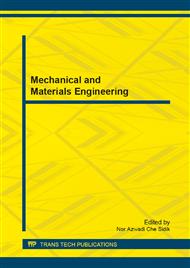p.613
p.618
p.623
p.628
p.633
p.638
p.643
p.648
p.655
Supply Chain Performance in Electronics Manufacturing Industry
Abstract:
It is still not clear how supply chain management can be applied to enhance and improve the performance of the supply chain. Consequently, the purpose of this research is to investigate the effect of five different factors in supply chain on its performance. This research studies the relationship between the selected variables (i.e. quality, time, information, flexibility, and integration) and supply chain management performance. This research takes a step forward to better understand the relationship between supply chain management factors and supply chain performance by incorporating these variables into the industrial landscape of electronics manufacturing in Malaysia. Specifically by using a combination model of a unified framework combining SCOR Model (Supply Chain Council, 1997) and system approach model (Min &Mentzer, 2004). As such, the analysis in this study contributes to the empirical literature of supply chain management, policy progress, as well as managerial implications. The outcome of this study also signifies the contribution it has given towards a new shift in upgrading the manufacturing best practices in developing countries through effective supply chain management practices.
Info:
Periodical:
Pages:
633-637
DOI:
Citation:
Online since:
June 2014
Authors:
Price:
Сopyright:
© 2014 Trans Tech Publications Ltd. All Rights Reserved
Share:
Citation:


